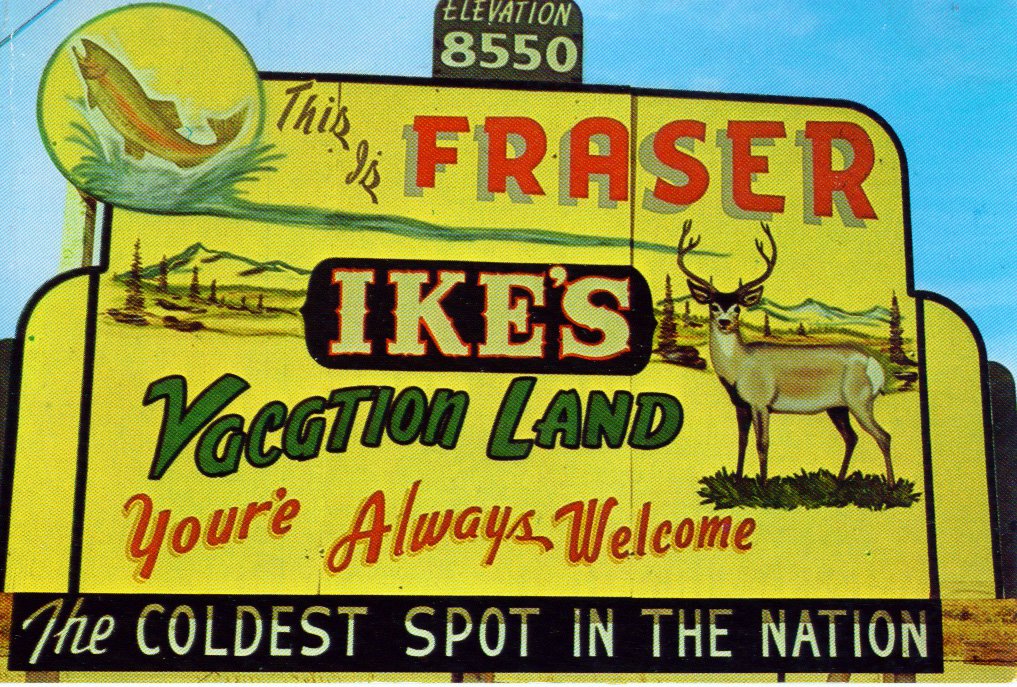Old Timers in the Old School
They came from all over the west, carloads of senior citizens bearing armloads of food and lifetimes of stories. Soon the gymnasium of the old coal heated schoolhouse echoed with happy “hellos” as each new arrival was greeted by friends and family, many who see one another only at this event: the annual Fraser Valley Old Timers’ Reunion.
The room was full of the sons and daughters of settlers who followed the railroad into this cold valley a century ago. Many of them were among the first generation of children to be born here, the progeny of Swedish immigrants who came to work in the timber. Most were born before 1930, a few before World War I. If the silver hair and dry country wrinkles weren’t enough to reveal the elderly status of these folks, then the nametags surely did: Mildred, Minnie, Elsie, Delbert, Hazel, Hank and Helen. Old time names.
Long retired cat-skinners in new Denver Broncos caps smoked Pall Malls on the front steps, while their wives sipped hot coffee from styrofoam cups and shared the latest family news. Tiny Mrs. Cole ambled around with the help of a walker, her eyes gleaming as she chatted with childhood companions. At 91, Mr. Gilbert looked frail, but as always, he brought one of his many 4-inch thick albums of rare and historic Grand County photos, and he still remembers the name of every plant that grows in these mountains.
It was a potluck, and gradually the crowd lined up to partake in a sumptuous buffet of meat and potatoes and pie. As everyone sat in folding chairs enjoying the meal, one by one, each person stood up (if they could) and gave their name and a little tidbit about themselves.
Mr. Miller said he was a child of the railroad, the son of the section boss who had chosen the Fraser stretch of the line because the section house had running water. Mrs. Wilson shared the hardships of childhood during the Depression, a blur of years spent washing laundry and stocking shelves in the grocery store to help her widowed mother make ends meet. Mrs. Goranson, the eldest person in the room, said she was born down by the river “about a thousand years ago” and recalled delivering two of her signature cherry pies to President Eisenhower when he came to town for a fishing vacation in 1955, an event that drew a crowd of more than 300 people.
Mrs. Vorquist gave only her name before breaking down in tears over the recent death of her husband of 60 years. Everyone applauded her courage, and everyone understood her pain. Most of them are near the end of their long, full lives, and none of them takes anything for granted.
A few are lost each year, but a handful always seem to appear out of the blue, often for the first time in decades. Mr. Carlson said it was nice to be back after 50 years, and gave thanks that the schoolhouse, so full of memories, was still standing. Like many local boys, he had left the valley to fight fascists in Europe or Communists in Korea, and upon returning home found that jobs on the ranches and in the sawmills were becoming scarce. So he headed out to a growing city of the west, where he raised a suburban family and made a good living before retiring. But always he longed to return to the valley, where the air was clean and the creeks ran clear and cold.
Despite the fact that they were in “Mountain Bike Capital U.S.A.”, in the very shadow of a corporate run mega-ski resort, there was no mention of epic powder days, single track bike rides, or the riches to be made by investing in the booming local real estate market. There were, however, tales of hard work, stories rooted in a time when livelihoods were made from the valley’s tangible natural resources rather than vague notions of scenery or recreation.
The local media didn’t bother covering this event, and there were no ski bums, county commissioners or developers in attendance either. That’s too bad, because this annual picnic is a link to a time and place that exists only in the aging memory of these humble Fraser residents. They can teach us a thing or two, but only if we take the time to listen.

No comments:
Post a Comment